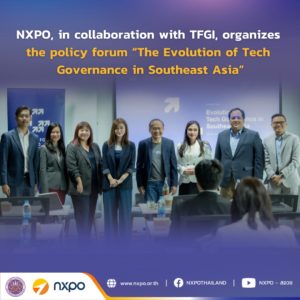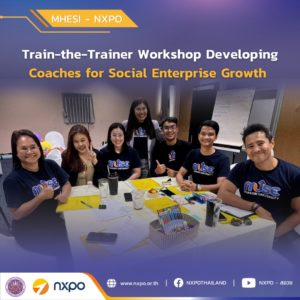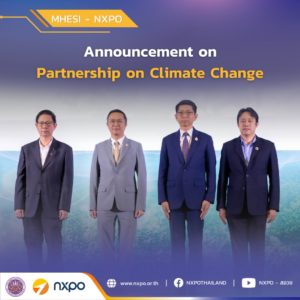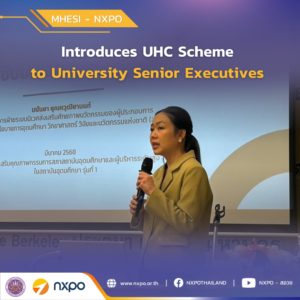NXPO President Dr. Kitipong Promwong recently represented Thailand at the 10th ADB International Skills Forum: A New Era of Digitalized and Climate Resilient Human and Social Development. The event held in Manila, the Philippines, from 17 to 19 October 2023 gathered key stakeholders in the Asia and Pacific region, including policy makers, academia, the private sector, international organizations and leading global experts, to share ideas, policies and models relating to education and training that can meet the evolving demands of labor market within the dynamic technological, economic and social landscape.

During the session on innovative education projects in Southeast Asia and Pacific, Dr. Kitipong presented several initiatives that Thailand has undertaken. The Higher Education Sandbox initiative was established to facilitate the development of new university programs designed in collaboration with industries. These programs are structured into certification modules, enabling students to earn a certificate upon completing each module, making them immediately employable. This approach offers flexibility, as students can secure employment without committing to a conventional 4-year degree program and provides the option to return for degree completion when they are ready. Another initiative is the STEMPlus which is a platform designed to support workforce upskilling and reskilling which has been boosted by the tax and non-tax incentives from the government. Dr. Kitipong also discussed a fast, intensive training model in the form of “bootcamp” which was launched through NXPO’s partnership with Generation Thailand. Two bootcamp courses have been implemented, successfully producing skilled software developers and senior care professionals to meet labor market demands.

The session also featured representatives from various countries sharing their initiatives and models. The Waka Moana Learning Hub was created to provide easy access to learning and teaching resources among educators in the Pacific region. Micronesia launched the Skills and Employability Enhancement Project to provide high school students with access to technical and vocational training, thus enhancing their employability and job opportunities. In Cambodia, the education policy emphasizes the academia-industry linkage, with the Skill Development Roadmap focusing on cultivating a highly skilled workforce for advanced industries through Technical and Vocational Education and Training (TVET). In Vanuatu, there are training programs specifically designed for women and people with disabilities, as well as programs addressing climate change adaptation. The Philippines introduced a national platform supporting freely available online education for all its citizens, while Indonesia established a new master’s program in energy technology to drive the net zero transition.
This forum provided an opportunity for Thailand to share its education and training policies and initiatives, as well as to learn from the practices of other countries that can be applied in Thailand to ensure that Thailand’s training and education system can build a competent workforce equipped with necessary knowledge and skills to tackle challenges such as climate change and rapid technological advancement.










